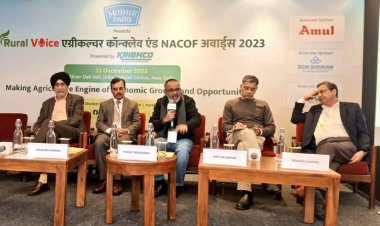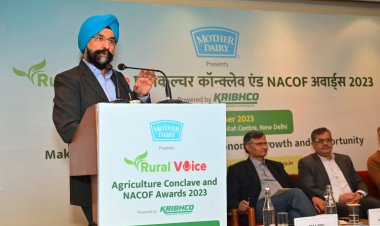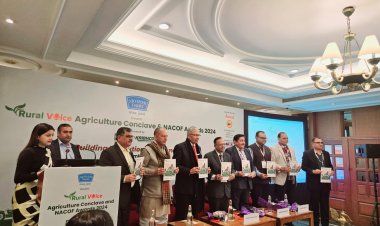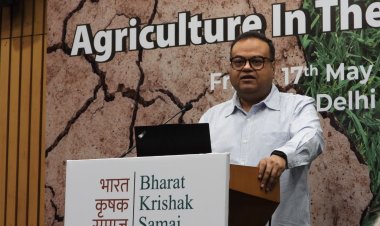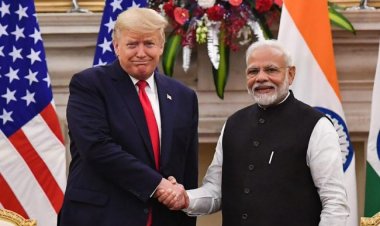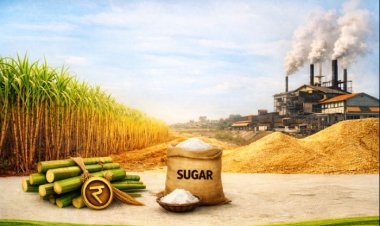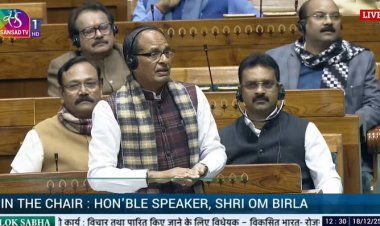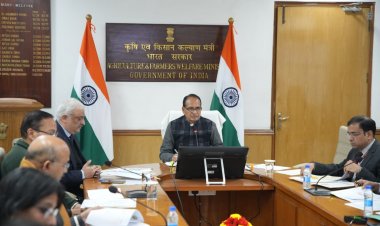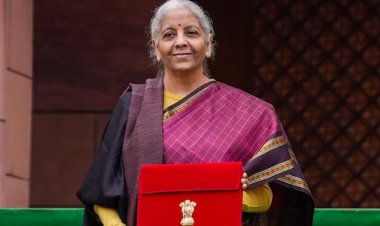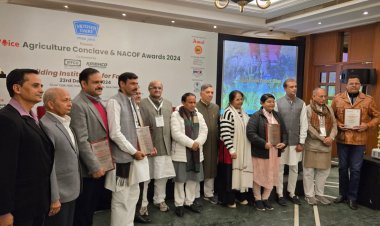Agricultural sustainability suffers as farmer not focus of govt policies: Yudhvir Singh
Speaking at a Roundtable Discussion of “Fertilizers for Farmers: Impact of Ukraine War” organized recently by Rural Voice and Socratus in New Delhi, BKU General Secretary Yudhvir Singh said that in order to ensure sustainability, the dependence on chemical farming would have to be reduced and methods devised to increase the use of the resources available in the country.
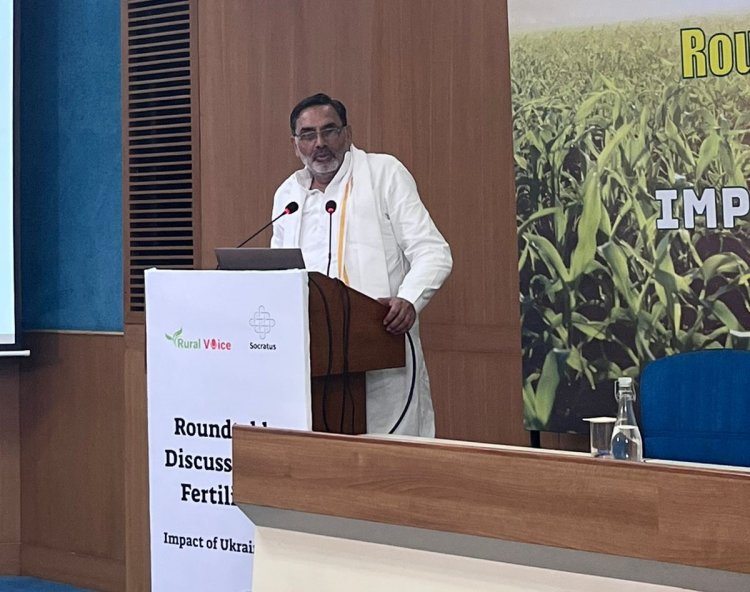
Speaking at a Roundtable Discussion of “Fertilizers for Farmers: Impact of Ukraine War” organized recently by Rural Voice and Socratus in New Delhi, Yudhvir Singh, General Secretary, Bharatiya Kisan Union (BKU), said that in order to ensure sustainability, the dependence on chemical farming would have to be reduced and methods devised to increase the use of the resources available in the country.
Singh admitted that “if we talk about farming, fertilizers have a crucial role to play.” But he also presented the other side of the picture that has gone into oblivion. “Fertilizers have been there for the past 50-55 years since I was a child. Before that, fertilizers were not a part of our farming.”
“All governments have blindly pursued the fertilizer policy,” said Singh, and they have not cared for issues like soil degradation.
Singh squarely blamed the government for the predicament of agriculture. “Whenever I was called, I said that the government was going in the wrong direction. We can use a (particular) technology for the time being. But is not appropriate to get permanently addicted and enslaved to any technology. And this is what has happened in our country.”
“India has a unique way of farming. Why then did we blindly follow this technology?” Singh lamented. And then he came up with the reason. “As the world came under the grip of capitalism, India did not remain untouched. And we got trapped in the vicious cycle of capitalism.”
Singh came up with a piece of sensible advice to be implemented in a phased manner. “I don’t say ‘Stop it once and for all’, thereby bringing the country’s food security at risk. But we’ll have to make parallel efforts.” He exhorted the farmers and the government to use our “traditional knowledge” and “available resources”. What he found unacceptable was the way we have rejected our way of farming by calling it “outdated thinking.” This, he said, was like being gripped by a “phobia”.
Farmers, too, had their share in promoting the dependence on fertilizers, Singh said. “When I was a child, we put cow dung in the fields in the summer once wheat had been harvested. We filled them in carts and spread them in the field in the months of April and May. And we did all the labour on our own. But today we have 50kg bags. No filling the carts, no spreading the cow dung in the fields. We go to the fields and add the urea in one hour. We, too, have thus become lazy.”
Singh was skeptical of the government’s intentions. “This is not going to stop,” he said. “When I had been called (by the government in a pre-Budget meeting), the subsidy was Rs 1,12,000 crores. Today it has gone in the range of 2.4-2.5 lakh crores.”
Driving home the point that the government does not care for farmers, Singh said, “90 per cent of the urea is used by the irrigated farmers. Only 37 per cent of the land is irrigated. 63 per cent of the farmers use urea only nominally and with the fear that if the rains do not come in time, the crop will burn.” What is the fault of this 63 per cent, he asked. The government does not even think about them because its chief concern is raising the subsidy for the “fertilizer industry”.
The figures for the irrigated area as a percentage of the agricultural land may have gone up. But it is difficult to miss the spirit of what Singh said. The farmer, he felt, is not the government’s “focus”.
“The day policies are made with a focus on the farmers, the agricultural sustainability of the country will improve,” Singh concluded.



 Join the RuralVoice whatsapp group
Join the RuralVoice whatsapp group

















